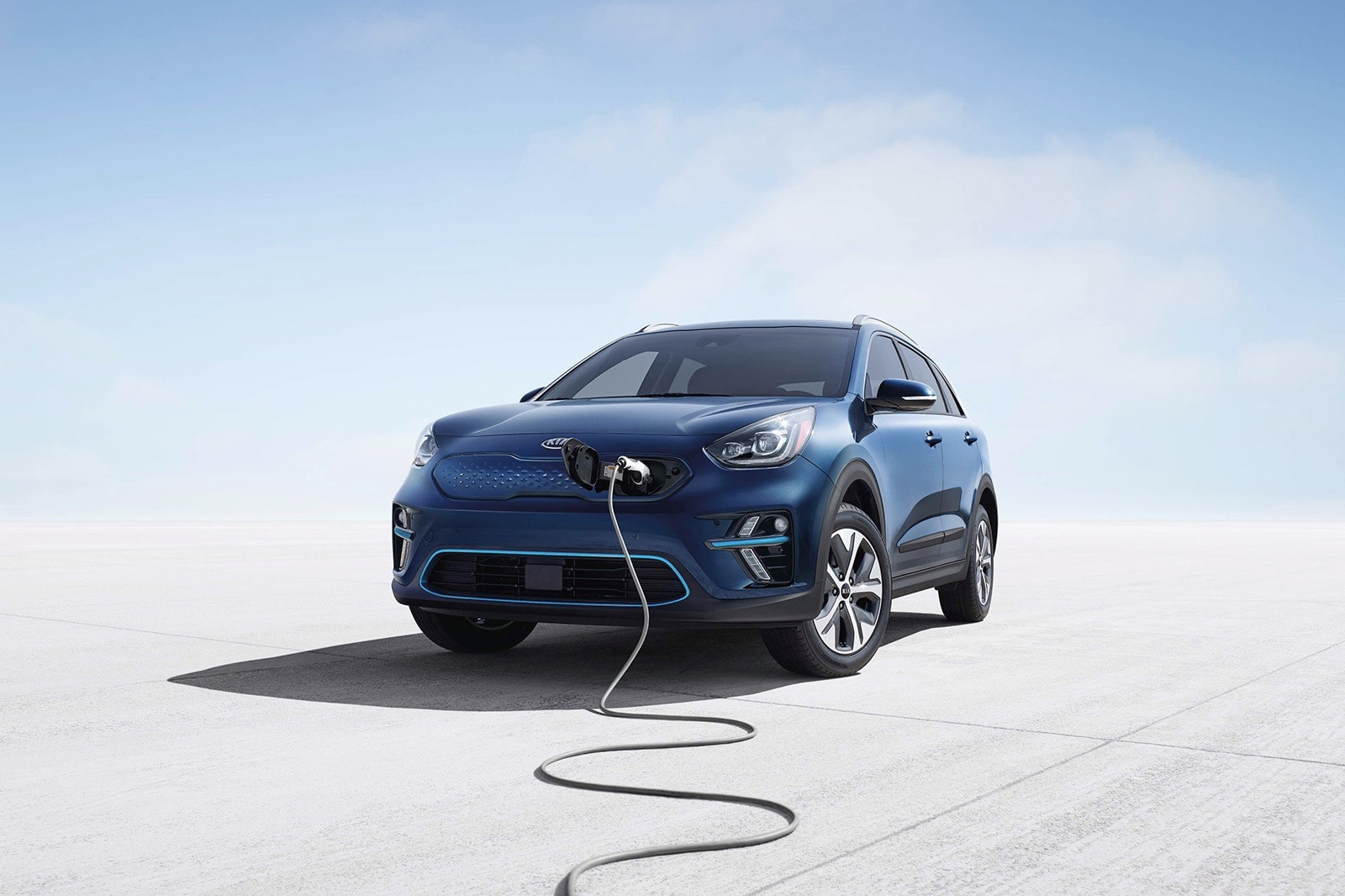Best Electric Cars: Top-Rated EVs for 2021 | Edmunds

*range tested at maximum battery charge to align with EPA estimates. Manufacturer recommends a lower battery charge level for daily use to preserve battery life.
Right now, Tesla is winning the range game. Depending on how they’re equipped, Tesla models can cart around a stunning amount of electricity. With new battery technology on the horizon, though, and more automakers joining the EV fray, Tesla may not be able to hold onto the crown forever. The models listed below are the specific versions with the best electric range.
Tesla Model S Long Range — 373 miles
Equipped with a massive 100-kWh battery pack and lacking the extra weight of the Model X, the Tesla Model S Long Range boasts the best range of any electric car currently on the market.
Tesla Model X Long Range — 328 miles
The Model X is a heavy vehicle, so even though it uses the same enormous 100-kWh battery pack as the Model S, it can’t go quite as far. Still, all that battery means the Model X easily outpaces its nearest non-Tesla competitor.
Tesla Model 3 Long Range — 322 miles
The Tesla Model 3 Long Range comes with a 75-kWh battery pack and is lighter and more efficient than its siblings, which means this Tesla can go a longer distance per charge.
Chevrolet Bolt — 259 miles
For 2020, Chevrolet rejiggered the Bolt’s battery chemistry, eking out extra range to beat out all of its mainstream competition (even if only by a single mile).
Electric Cars vs. Gas Cars
Gas-powered cars are comforting in their familiarity. With gas stations easily accessible across the country, they provide unparalleled freedom and, in some cases, a dramatic exhaust note to boot. Sadly, they also produce a lot of air pollution. EVs are an environmentally friendlier alternative and a great match for many drivers’ day-to-day needs.
Electric cars drive differently but not necessarily in a bad way. They provide instant torque, making them feel zippy around town. And with regenerative braking, drivers can practice “one-pedal driving,” in which simply lifting off the throttle pedal results in significant deceleration. Electric-car ownership means adopting new habits as a driver and owner. Luckily, one of those habits is never having to visit a gas station. If you can install a charging station at home or have access to one where you work, there’s a strong chance an electric vehicle would make a good commuter for you.
Electric Cars vs. Hybrids
Hybrids use an electric motor to assist a gasoline engine, improving fuel efficiency while maintaining the freedom of a gas-powered car. They’re more mechanically complex, but owning (and driving) a hybrid really isn’t much different from owning a traditional gas-powered car, which is definitely part of the appeal.
Plug-in hybrids can be charged up like an all-electric car and driven for a short distance on full electric power before switching over to normal hybrid operation. Most plug-in hybrids won’t go more than 20 miles or so on electricity, though. (The outgoing Chevrolet Volt is a shining exception with its electric range of 50-plus miles.) An electric car with a range extender, such as the BMW i3, is different from a hybrid in that its gas engine is only used to generate electricity and can’t drive the wheels.
Electric Vehicle Benefits
If you can access a charging station at your home or office, you can likely rely on an electric car to replace your gas car for everything but road trips. All you have to do is plug it in at either location, and it’ll charge up while you’re doing other things. Electricity is also cheaper than gas, meaning you’ll save money on energy over the life of the car. For more details, check out our “The True Cost of Powering an Electric Car.”
Cars that are all-electric also have fewer moving parts that can break. Most maintenance will likely involve wear on items such as tires, brakes and windshield wipers. You’ll never have to pay for a belt job with an electric car. And there are big tax incentives available, which can help cushion the upfront cost of an electric car. If you lease, you’ll see those incentives taken out of your payments right away, saving you some paperwork.
Choosing the Right Electric Car for You
For many households, an electric car makes a lot of sense as a second vehicle. Electric cars provide a clean commuting alternative, requiring less maintenance and zero trips to the gas station. The trick will be to figure out where and when you can charge and how many miles you need to be able to drive between charges.
Make sure to check out our “9 Steps to Easier Plug-In Car Shopping” to help you take the first steps on your electric-car journey. You may be surprised to find out that an electric car could fit your lifestyle.
